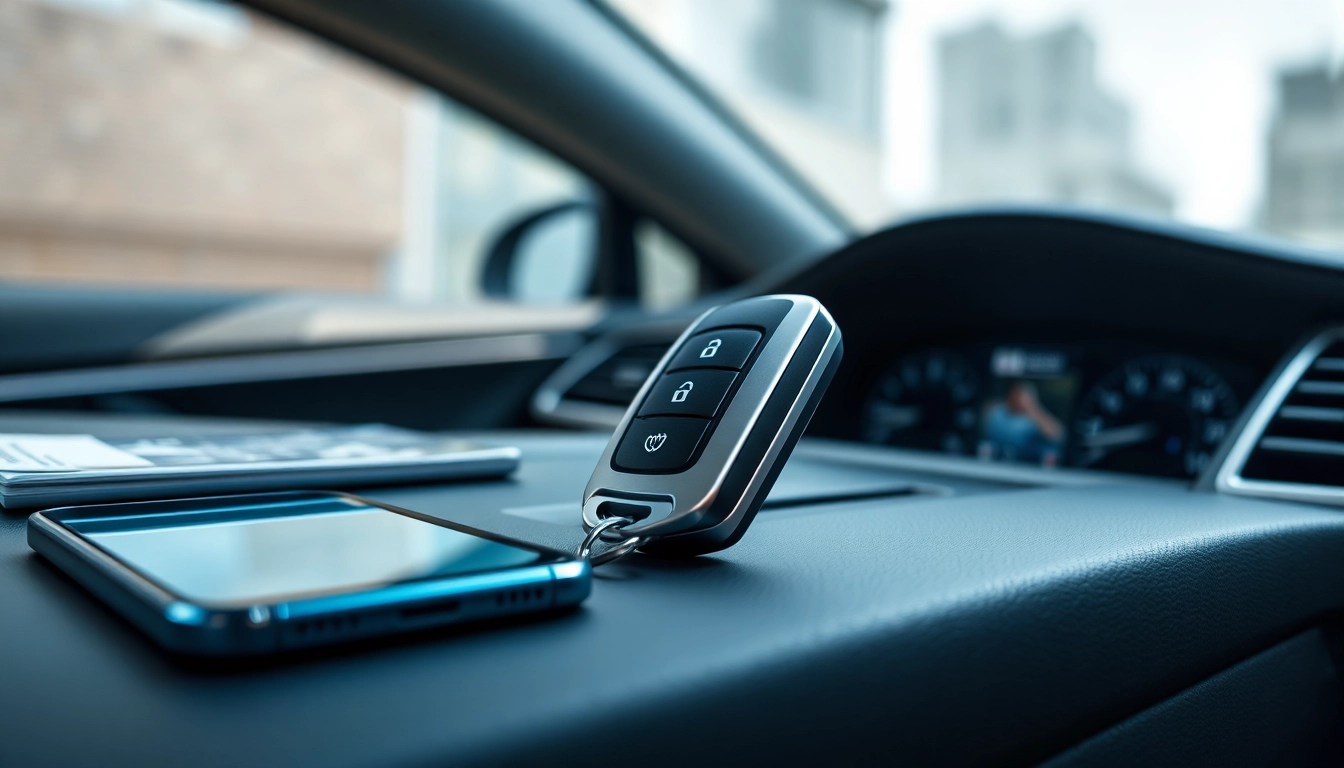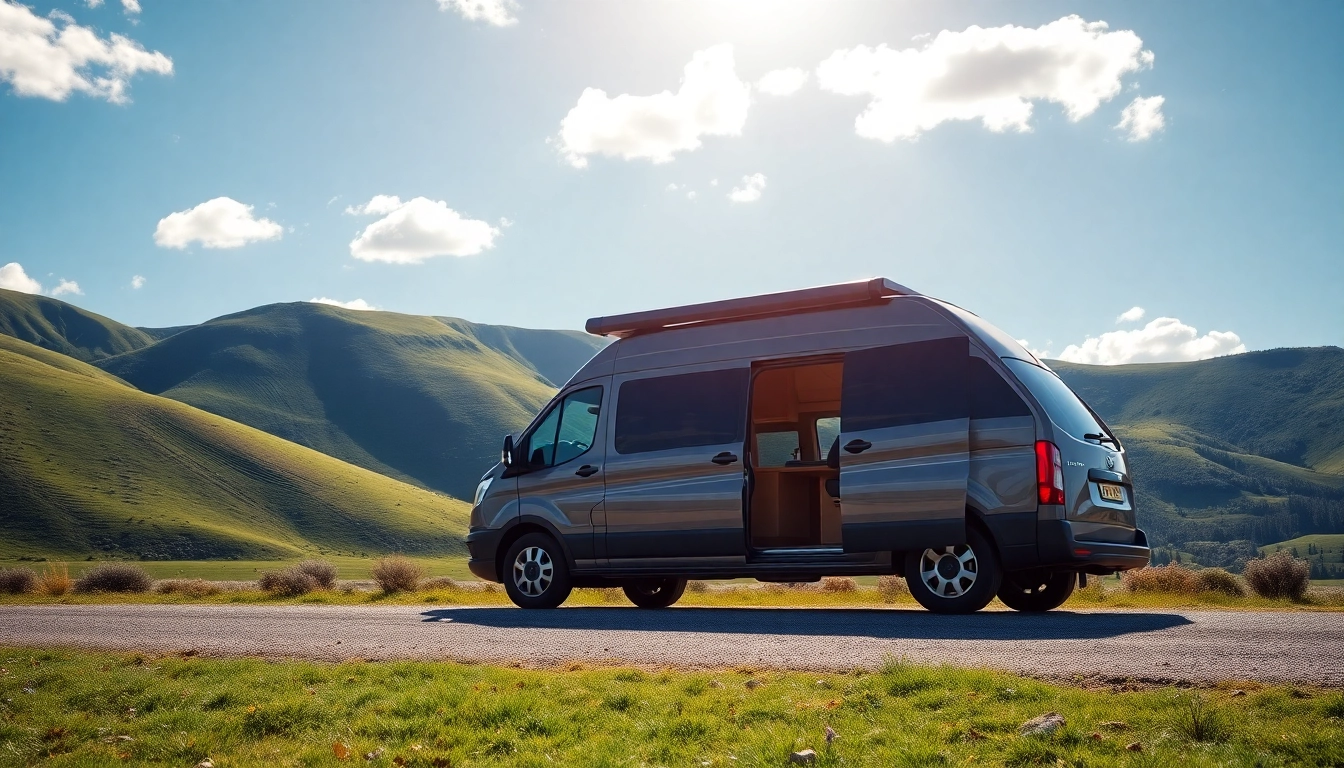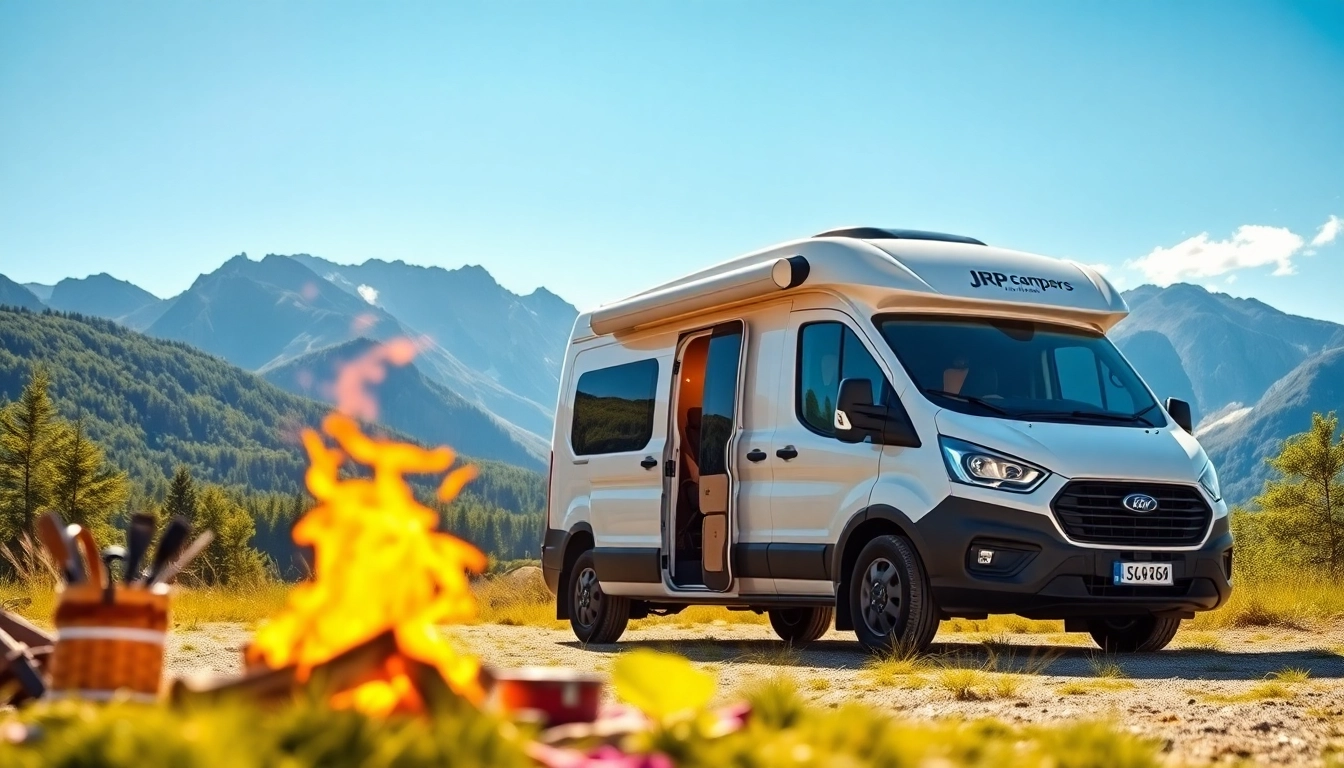Understanding Keyless Carkeys
What are Keyless Carkeys?
Keyless Carkeys, also known as smart keys or proximity keys, are advanced electronic devices that grant drivers access to their vehicles without the need for a traditional mechanical key. These devices have revolutionized the way we interact with our vehicles. By utilizing wireless technology, keyless carkeys allow users to unlock doors, start engines, and even immobilize the vehicle—simply by being in proximity to the car. This convenience not only enhances user experience but also elevates vehicle security.
How Keyless Carkeys Work
The operation of keyless carkeys is founded on radio frequency communication between the key fob and the vehicle. Most keyless systems function within a range of 5–20 meters. When the driver approaches the car with the key fob, a radio signal prompts the vehicle’s computer to unlock the doors. Upon entering, the driver can start the engine by pressing a button, as the vehicle recognizes the fob’s unique frequency.
A component known as a transponder chip within the key fob additionally enhances security. It transmits a code to the car that must match a corresponding code in the vehicle’s onboard computer. If the two codes align, the car will start; if not, the engine remains immobilized. This system effectively deters unauthorized access and vehicle theft.
Benefits of Using Keyless Carkeys
Keyless carkeys provide numerous advantages over traditional keys, making them increasingly popular among consumers. These benefits include:
- Convenience: Users can unlock and start their vehicles without fumbling for keys, providing a seamless entry experience.
- Security: Enhanced security features, including rolling codes and transponder technology, significantly reduce the risk of theft.
- Accessibility: Individuals with mobility challenges find keyless entry systems easier to use, as they eliminate the need to struggle with physical keys.
- Integration with Technology: Many keyless carkeys offer features that integrate with smartphone apps, allowing for remote vehicle access and tracking.
Choosing the Right Keyless Carkeys for Your Vehicle
Factors to Consider When Selecting Keyless Carkeys
Selecting the appropriate keyless carkeys for your vehicle is crucial for ensuring compatibility and security. Here are some factors to consider:
- Vehicle Model and Year: Ensure the key fob you select is compatible with your vehicle’s make, model, and year. Keyless technologies can vary significantly among different manufacturers.
- Features: Different keyless systems come with various features. Some may include remote start options, trunk release, or additional security features. Evaluate what features are necessary for your needs.
- Quality and Brand: Opt for reputable brands that guarantee quality and reliability. Reading customer reviews can also help in making an informed choice.
Common Features of Keyless Carkeys
When shopping for keyless carkeys, you might encounter various features. Understanding them can help you choose the model that best suits your requirements:
- Remote Start: This feature allows users to start the vehicle remotely, which can be particularly useful in extreme weather conditions.
- Panic Button: A safety feature that triggers the car’s alarm, attracting attention in emergency situations.
- Keyless Entry: The ability to unlock vehicles simply by approaching them, streamlining the entry process.
- Smartphone Integration: Some key fobs can pair with an app on your smartphone, giving you additional control over your vehicle.
Brand Compatibility with Keyless Carkeys
Not all keyless fobs are interchangeable; brand compatibility is critical. Generally, original equipment manufacturer (OEM) keys are recommended for their assurance of best fit and security. However, aftermarket alternatives may offer cost-effective solutions, albeit sometimes lacking the quality control of OEM products. When seeking a replacement or new keyless carkey, confirm compatibility with your vehicle’s brand to avoid functionality issues.
Programming and Maintaining Your Keyless Carkeys
Steps to Program Keyless Carkeys
Programming a new keyless carkey can vary based on manufacturer, but here are general steps to get you started:
- Ensure all doors are closed and the vehicle is off.
- Insert your existing key into the ignition and turn it to the “On” position without starting the engine.
- Press the programming button on the new key fob within a specified timeframe, usually within 30 seconds.
- Follow additional prompts as per the vehicle’s manual to finalize programming.
In some cases, programming may require specialized equipment, particularly in newer vehicles. Evaluating whether to attempt DIY programming or seek a professional locksmith can save time and potential errors.
How to Troubleshoot Keyless Carkeys Issues
Despite their convenience, keyless carkeys can sometimes experience issues. Here’s how to troubleshoot common problems:
- Fob Not Recognized: If the vehicle does not recognize the fob, check the battery’s charge and replace if necessary. Also, ensure you are within the operational range.
- Unresponsive Unlock Button: If the unlock button isn’t functioning, it could be due to a weak battery. Again, replacing the fob’s battery is often a quick fix.
- Engine Won’t Start: If your car won’t start, verify that the fob is correctly programmed. In some instances, reprogramming may solve the issue.
Best Practices for Keyless Carkeys Maintenance
Maintaining your keyless carkeys is vital for prolonging their lifespan and functionality. Here are some best practices to consider:
- Regular Battery Inspection: Check the battery life periodically and replace as needed to prevent operational issues.
- Store Fob Securely: Keeping your key fob in a protective case can shield it from physical damage and maintain its integrity.
- Limiting Exposure to Extreme Conditions: Avoid exposing keyless carkeys to extreme temperatures, as this can impact battery performance.
Replacing Your Keyless Carkeys: What You Need to Know
Signs You Need to Replace Your Keyless Carkeys
There are several indicators that it might be time to replace your keyless carkeys:
- Unresponsive Functions: If certain features (lock, unlock, start) become unresponsive, it may indicate a failing fob.
- Physical Damage: Cracks, water damage, or normal wear can compromise the fob’s functionality.
- Batteries Frequently Need Changes: If you find yourself replacing batteries regularly, it might signal that the key fob is nearing the end of its lifespan.
Cost of Replacing Keyless Carkeys
Understanding the costs associated with replacing keyless carkeys can help you budget appropriately. Prices can vary significantly based on a variety of factors, including:
- Type of Key: OEM keys may cost more than aftermarket options, but the quality difference can be worthwhile.
- Programming Fees: Some keys require professional programming that comes with additional costs.
- Retailer Variation: Prices can differ across retailers, making it advisable to compare before purchasing.
Where to Buy Replacement Keyless Carkeys
You have several options for purchasing replacement keyless carkeys, including:
- Authorized Dealerships: While typically the most expensive, dealerships offer the assurance of original parts and proper programming.
- Automotive Supply Stores: Many of these stores carry a variety of keyless carkeys which can be programmed in-store.
- Online Retailers: Shopping online may provide cost-effective alternatives, but always ensure the key is compatible with your vehicle.
The Future of Keyless Carkeys Technology
Emerging Trends in Keyless Carkeys
As vehicle technology evolves, so does the keyless carkeys landscape. Emerging trends include:
- Biometric Access: The integration of fingerprint and facial recognition is proposed as a future step in vehicle access technology, enhancing security even further.
- Smart Home Integration: Keyless carkeys that function with smart home systems could allow seamless interaction between home and vehicle, creating a more convenient user experience.
- Increased Use of Mobile Technology: Key fobs that can be controlled via smartphone apps are already gaining traction and promise to expand in functionality.
Smart Technology Integration with Keyless Carkeys
Smart technology integration is pushing the limits of what keyless carkeys can do. Features such as geofencing can alert you if you stray too far from your vehicle, or even disable functionality if the key fob is outside a predetermined range.
Furthermore, through connectivity with smart devices, users may be able to customize settings, such as temperature control or seat adjustment, before even entering the vehicle. Such capabilities illustrate the potential of keyless technology to enhance the driving experience significantly.
Predictions for the Evolution of Keyless Carkeys
Looking ahead, the evolution of keyless carkeys will likely continue to prioritize security, user convenience, and technological advancements. Predictions include:
- Increased Security Measures: We can expect continuous improvements in encryption technologies to combat rising security threats.
- Adaptability Across Vehicle Types: More universal systems may emerge that allow keyless technology to be adapted broadly across various makes and models.
- Simplicity of Use: Future trends will likely aim to make systems even easier to use, reducing the learning curve for new users.
In conclusion, the world of Keyless Carkeys presents significant innovation and convenience that is set to evolve in the coming years. By understanding the technology, features, and benefits of keyless systems, consumers can make informed decisions that enhance their driving experience.


